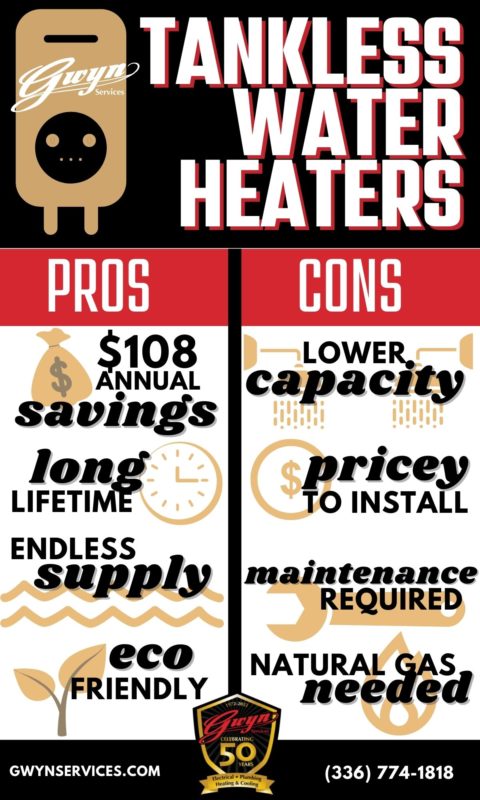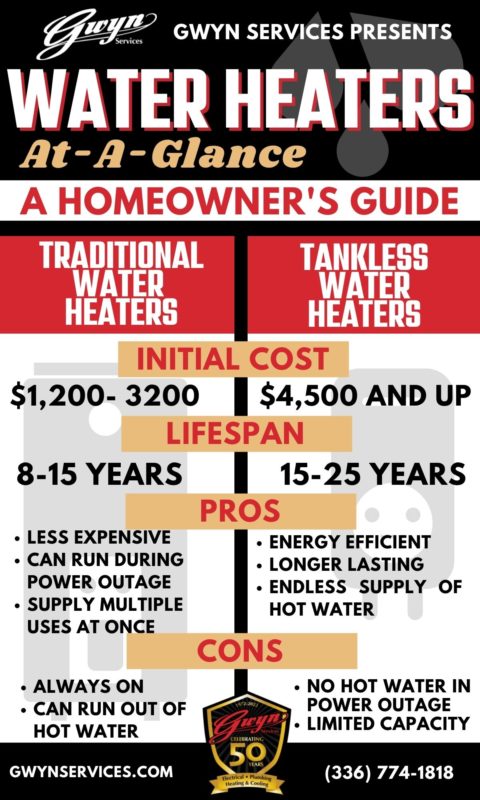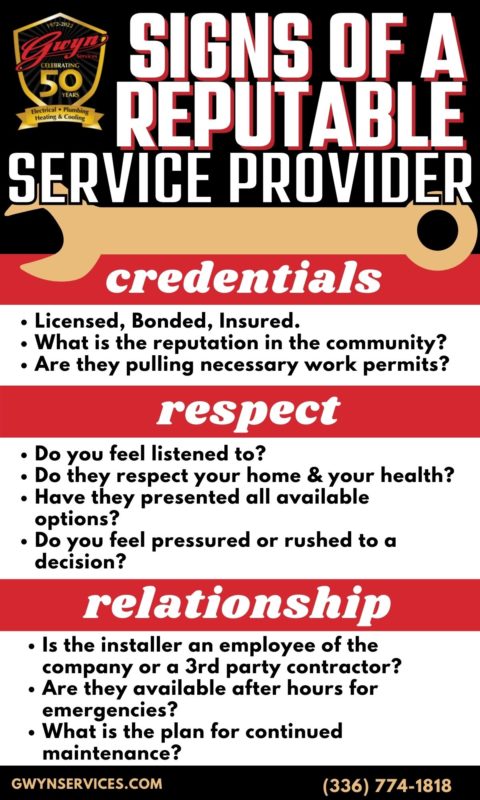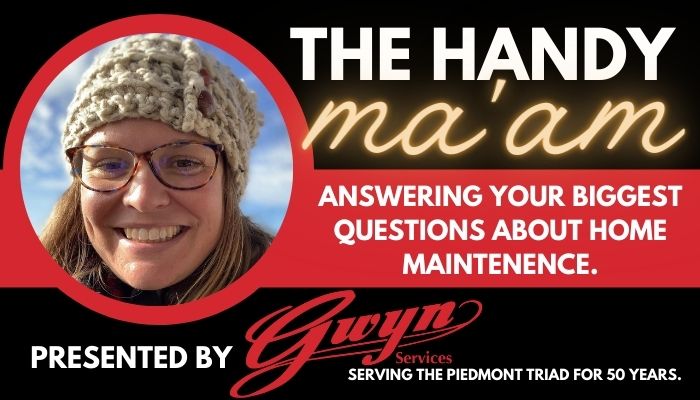A Shower of Info on Water Heaters
By Guest Blogger Marissa Joyce, Gwyn Services
There’s a moment in home ownership that everyone dreads… turning on the faucet in the shower, to find cold water. Often, immediately followed by finding your water heater sitting in a pool of water.
The lifespan of water heaters is 10-20 years, meaning homeowners should plan to replace theirs at least once during the time they own their home. However, when that time comes, it never seems like there’s time to carefully consider all your options. To help you navigate, here’s everything you need to know about water heaters, provided by Gwyn Services!
When confronted with the need to replace your water heater, the number of choices seems overwhelming. Tankless or traditional? Electric or Natural Gas? Size? Budget? Warranty?
Here is quick rundown of options for water heaters:
Energy Source:
Water Heaters primarily run from 2 different energy sources: electric, or natural gas. In the Piedmont Triad, the breakdown of gas to electric water heaters runs roughly 60/40. In general, gas powered water heaters tend to be more energy efficient than electric, but cost more to initially install.
Tank Vs. Tankless Water Heaters:
Traditional water heaters contain a storage tank that holds a reservoir of hot water ready to send into your home. These appliances tend to be less expensive, but also have a shorter lifespan than tankless heaters. When purchasing a traditional water heater, you need to consider the size of your storage tank. Also consider the First-Hour Rating (the gallons of hot water that can be output in one hour from a full tank). One plus for traditional water heaters is that they retain a reservoir of hot water available even in a power outage. Natural gas powered tanks can even provide ongoing hot water, in an extended outage.
Tankless water heaters utilize a heat exchanger to heat water on demand. This means that your system isn’t having to maintain a reservoir of hot water around the clock. These systems are typically 15- 20% more energy efficient than traditional heaters. At Gwyn, our licensed plumbers recommend natural gas tankless water heaters, because their operating costs and need for repair are much less than electric units.
When considering a tankless heater, it’s important to look at the flow rate for the unit you are looking to purchase. A typical tankless heater has an output rate of 2-5 gallons per minute. This can potentially be overtaxed by two showers running simultaneously. A good quality tankless heater should have a flow rate of at least 5 gallons per minute, and should come with a warranty. Many models also include hot water circulators as part of the unit. This means that hot water is available instantaneously to your tap.
Other Considerations for Your Water Heater
Tankless water heaters typically have a lifespan of about 15-20 years (with up to a 15 year warranty), but have a higher initial cost. Storage tank heaters last 10-15 years on average (with a 6 year warranty), but are less expensive to purchase. Depending on your average daily water use, tankless water heaters can be up to 30% more energy efficient. Either way, consider purchasing an Energy Star Rated unit to maximize your energy efficiency and cost savings. Tankless water heaters require annual maintenance to maintain their warranty. Storage tank water heaters can be flushed annually to maintain the efficiency and life of the appliance. Plan for either annual service to cost approximately $225 per year.


Who To Trust With Your Home
While Gwyn Services has been working in the Piedmont Triad for 50 years with a great reputation, we also believe in giving our customers the essential information to make their best possible decision. Therefore, we polled our service techs to ask what THEY think is an indicator that you are working with an honest, reputable company.
No High-Pressure Sales
If you feel pushed to make a decision right away, that’s a sign that you’re working with a firm that’s focused more on sales than on customer satisfaction. An honest repairman will present facts and options, and leave the final decision up to you.
Open to Questions
There’s no such thing as a silly question! When you are considering a major repair, your service technician should be patient and willing to answer ALL of your questions.
Don’t pay up front
Many less-principled workmen in the area ask for the full payment up front for a job, and then don’t return to finish to their customer’s satisfaction. Look for clear billing practices, an up front deposit with a written estimate, and a payment schedule that benefits you.
Credentials
Your home is a major investment. Therefore, you want to make sure it’s protected with a licensed, bonded, and insured firm. Ask if permits need to be pulled, and expect paperwork for your unit’s warranty and manufacturing info. Pricing that’s low compared to competitors can be a red flag. Often, shortcuts have been factored into the bargain price, leaving your home at risk. Also, be wary of third party installers that are not employed by the company you called. Check reviews and word of mouth to ensure you are working with a company you trust.
Availability
Many contractors only offer services during regular business hours. A good contractor will have emergency service available after the other firms close at 5pm.
Respect
A service provider’s workplace is YOUR home. They should treat it, and you with respect. This includes good communication, keeping your home clean, and making sure you feel comfortable.
To find out more about Gwyn Services, visit www.gwynservices.com, find us on Facebook or Instagram, or give us a call! (336) 774-1818


*Sponsored by Gwyn Services
Want to see more blogs like this and get notifications on local events and happenings? Subscribe to our free weekly newsletters here.


I would LOVE to see Handy Ma’am as a regular article!
Thank you for this helpful article.